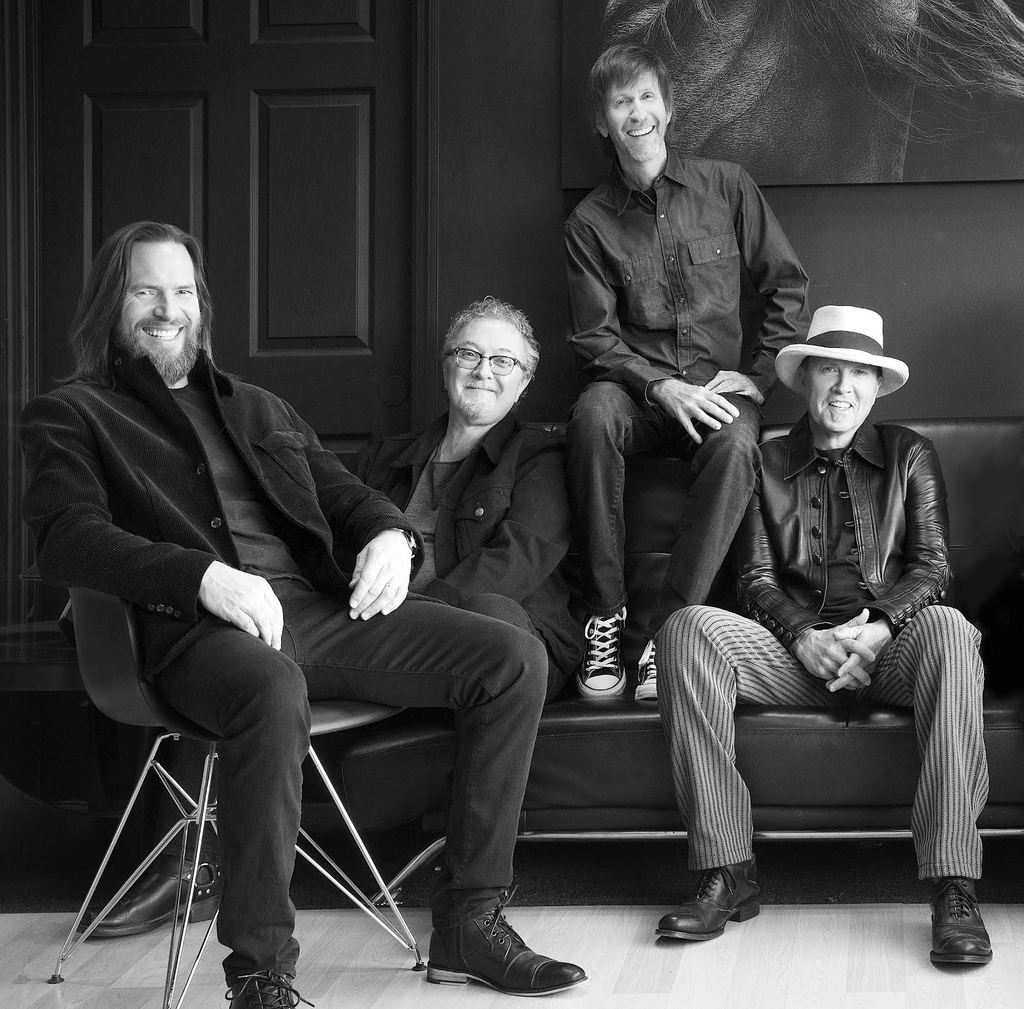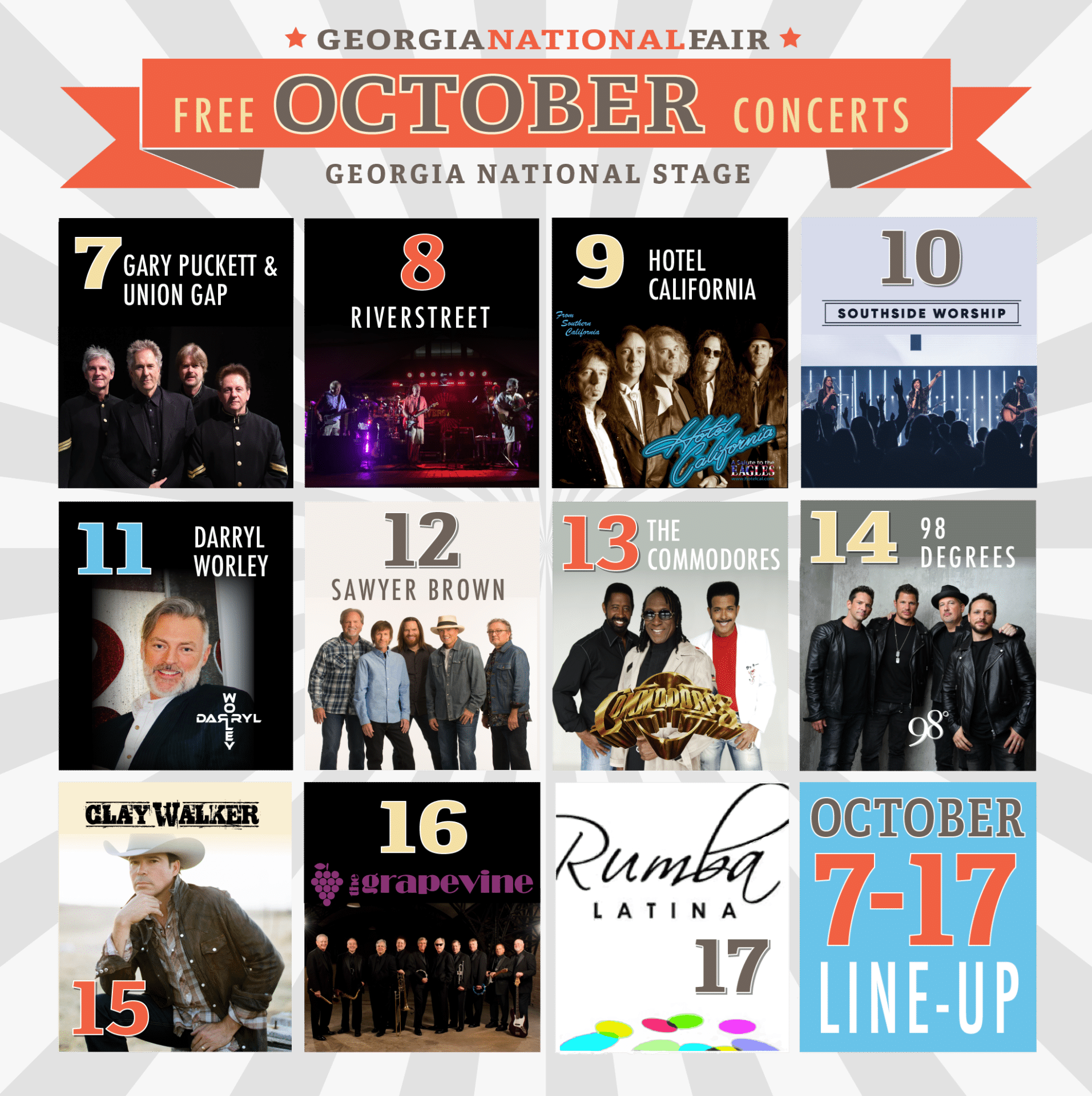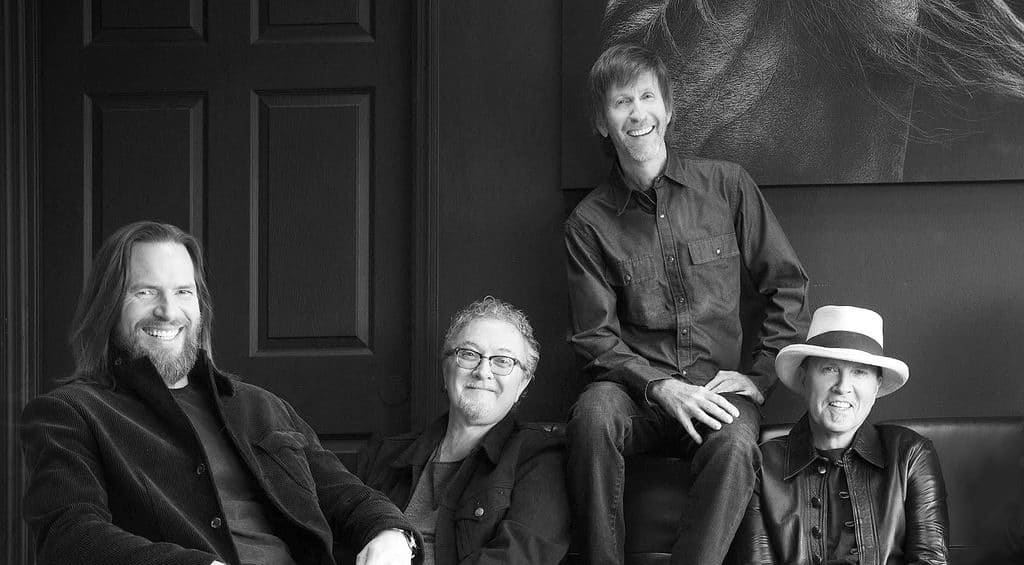Sawyer Brown has been hailed as one of the most dynamic acts to ever drive country music, and 40 years in, the band’s energy and passion are as strong as ever! The Apopka, Florida outfit formed in 1981 but made national headlines when they appeared on the variety talent show Star Search in 1983, sweeping the judges to win $100,000 dollars and a bonafide recording contract. Since then, Sawyer Brown has thrilled live audiences and topped the charts with hits like “Step That Step”, “Thank God For You”, and the anthemic “Some Girls Do”. Keyboardist & songwriter Gregg “Hobie” Hubbard called in to talk about the band’s innovative early years, his current musical tastes, and how he feels about Sawyer Brown’s signature sound finding new admirers ahead of their LIVE performance at this year’s Georgia National Fair on Tuesday, October 12th!
AI- A lot of artists during the downtime took to social media, kept weekly residencies. You were no exception. You had That Sawyer Brown Show on your YouTube channel, and like many artists, you had an opportunity to revisit your discography, the band’s personal history. You got to break down songs and music videos that you made, and you got to play live too. What was that like– walkin’ back through your career?
HH- It was pretty wild! I remember the night that we played the “Out Goin’ Cattin'” video, I truly would not have seen that probably in 30-something years! So it was hilarious watching that! And some of the other older videos, even like “Step That Step”, I can specifically remember things about the days of shooting when I might or might not know where my car keys are at any given moment! It’s amazing how the memory works!
Did it give you an opportunity to add things to the show for this year?
We have talked about puttin’ some of those things back in that we’ve not played in forever! Right before pandemic, we had begun to mix in some stuff that we hadn’t done in a long time. So I think we might revisit a few more of the oldies that we haven’t played in a while!
What were you listening to during your time off? I understand you are a voracious music fan, not just a performer in your own right. What was on your playlist or on the turntable during your time off?
Mine tends to be pretty eclectic, in general, but I’m always looking for new music on any given season of my life. During pandemic, I did tend to lean back on stuff that I already knew and loved, going all the way back to some Tony Bennett, Rosemary Clooney records I had from being a kid with my parents all the way to some Willie Nelson that I absolutely love! Plenty of Dolly Parton, lots of Loretta Lynn! It was a pretty wide mix! But I tell you, my favorite discovery of the last few years is a new artist named Ruston Kelly, who’s a great writer, great singer, and both his records, I listened to a whole lot during pandemic.
You have spoken before about the generational audiences for Sawyer Brown as your career has progressed, and recently, American Aquarium covered “Some Girls Do”. When that album, Slappers, Bangers & Certified Twangers came out, I called [BJ Barham] ’cause I was like, “Dude, what are you doin’? This is cool!” You’re doin’ all these late ’80s, ’90s covers!” What was your reaction when that happened?
We loved it! Earlier during pandemic, the son of some friends that I grew up with had sent me this clip where American Aquarium had just done “Some Girls Do” on somethin’ that they had online. I watched it and I’m like, “Gosh, man, that is so cool!” Then we got word that he was gonna put his version of it on this record– and we all loved it! First of all, I love that entire record! It’s great! I’ve gotten to have a few conversations with BJ, who’s just awesome, and a man buildin’ somethin’ from the ground floor up, workin’ the road with a hard work mentality that I just absolutely love! You get out there, you make your music and you go work it live, and that’s what BJ has built his career doin’. And it’s the exact same thing we’ve done!

You guys were such a part of that piece of country music and popular music at the time, the late ’80s and early ’90s, and the ’90s influence has really been coming back in pop music and hip hop music and rock music as well. Now, you’re starting to see it really shine in roots and Americana music. How do you feel about these sounds and this style comin’ back around?
Man, it’s pretty cool because I think there was some really cool records made in the ’90s. We’re certainly grateful that we got to be in the mix, but man, all across the board, there was some great writing going on! There were great singers, cool production, and I think it was something that people are now looking at goin’, “Oh man, what was it about those records?” They just felt good and sounded good, and people are goin’ back and listenin’ to that and leanin’ on that sound. It’s just really cool to have been a part of that!
It’s also music that I think many people associate with the radio and having a sort of a communal experience, which is, I guess, similar to a concert. It’s just comin’ off an FM band!
Very true! And that’s the thing that I love about live music, both the times I get to be on stage and the times I’m in the audience. It really is about the shared thing that’s happening right at that moment in time. Everybody’s bringin’ in their own individual connections with the music that they’re hearin’, which is both individual and collective at that point. There’s nothing else quite like that! And you’re right, I hear people all the time when they talk about that era, “I’ve rode with my dad listenin’ to this,” or, “When I learned to drive, I was listening to this!” So there is that thing that’s very attached to the radio. And I’m still a radio listener, personally! So yeah, I get it!
When you started out back in Nashville in the early ’80s, many of you from the band have talked about how Music City wasn’t quite ready for the way you guys were doin’ things.
They were not!
Lots of energy, bringing youth into it– and you guys still have a dynamite energy! You still give it your all! Do you look around Nashville today or in the country music business and see things that you were doing then really being more embraced in this day and age? And why do you think that is?
I think that we– not knowing we were doin’ it– were probably helpin’ kick down some doors just because we wanted to do things the way we felt like we should do it for our music. It was energetic and we might’ve looked different or sounded different, but it’s like, man, just let people be who they are! I do think there’s much more freedom in that way now. I will occasionally laugh and get mad when I think of the stuff we caught crap for in the ’80s– and it wouldn’t even cause anyone to blink at this point! It was us thinkin’ from the get-go, “We just gotta be who we are, and if it works, great! And if it doesn’t, we’re gonna go down swingin’!”
Don’t miss Sawyer Brown LIVE at the Georgia National Fair, Tuesday, October 12th & enjoy the full 2021 concert lineup, FREE with paid regular admission!

